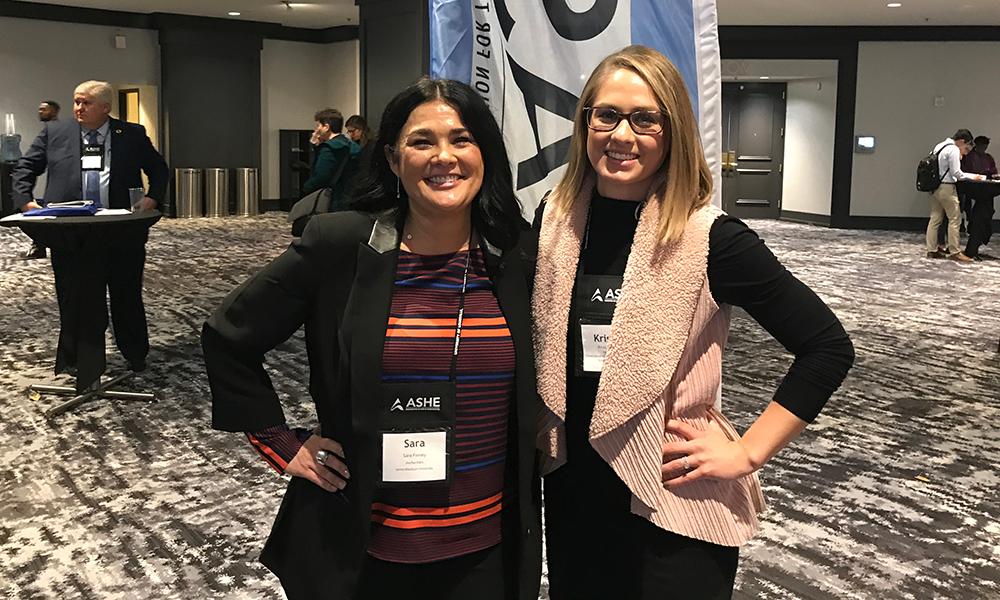Publication makes case to build and evaluate ethical reasoning programming
College of Health and Behavioral Studies
Kristen Smith (’12, ‘14M, ‘17PhD) and graduate psychology professor Sara Finney published “Elevating Program Theory and Implementation Fidelity in Higher Education: Modeling the Process via an Ethical Reasoning Curriculum” in the journal Research & Practice in Assessment.
There is an expectation by stakeholders (e.g., parents, students, administrators, governors) that educational programming on college campuses are evidence based. There are two types of evidence necessary when discussing the effectiveness of educational programming: 1) when developing a new program, the developers should use existing evidence (e.g., research) to explain why the programming should result in the intended outcomes; 2) when assessing the effectiveness of the programming on campus, the developers should gather outcomes and implementation evidence to communicate if the programming impacted student.
As Smith and Finney explain, JMU’s Ethical Reasoning in Action (ERiA) exemplifies the thoughtful use of both types of evidence. Lead by experts in ethical reasoning, the theory or logic of the programming was informed by research. The developers were able to articulate what students need to know, value/appreciate, and do in order to behave ethically. This articulation of an evidence-informed program theory allowed for clear specification of malleable and feasible outcomes that could be measured during the outcomes assessment process. Thus, the effectiveness of ERiA could be and has been assessed on our campus. The assessment of program effectiveness involved examining both student learning outcomes and implementation fidelity (i.e., how well the programming was implemented).
It is difficult to find examples of educational programming where institutions can answer both “Why should this programming be effective, given research and theory” and then “How effective was the program when actually implemented on your campus”. As Smith and Finney showcase, ERiA is a powerful example of JMU meeting its ethical obligation to offer should-be-effective programming and then confirming that in fact the programming was effective and impacted students in meaningful ways.
The authors contend that program theory and implementation fidelity should be prominent components of higher education outcomes assessment processes. They hope the success of JMU’s ERiA programming can serve as a model for programming and assessment initiatives on other college campuses.
Smith is currently employed by Macmillan Learning. Finney teaches in the assessment and measurement program and serves as an associate director for the JMU Center for Assessment and Research.
